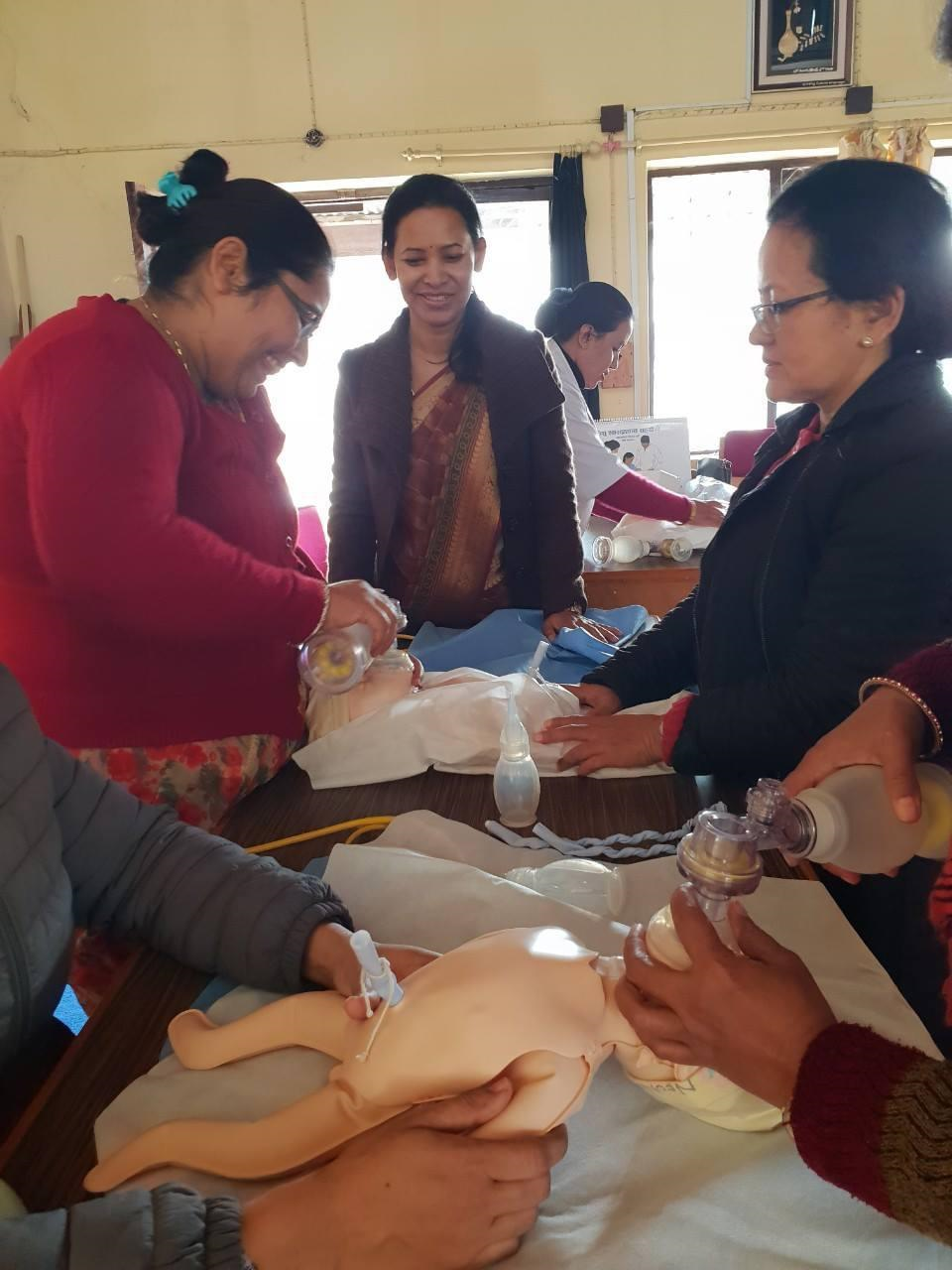Going national in Nepal - Scaling up Helping Babies Breathe and Helping Mothers Survive
Nepal's Ministry of Health will implement the Helping Babies Breathe and Helping Mothers Survive programs, nationally.
Around the world, about 2.4 million newborns and 300,000 mothers die during childbirth, every year. Birth asphyxia continues to be a leading cause, with an annual estimated 660,000 neonatal deaths every year.
In addition, post-partum hemorrhage is the most common cause of maternal deaths. Most of these deaths could be avoided with well-implemented training solutions.
The Helping Babies Breathe and Helping Mothers Survive programs were developed for this purpose and have been shown to reduce newborn mortality by almost 50%.
Nepal's commitment
The government of Nepal has recognized the results of these programs and has taken action.
In Nepal, the current newborn mortality rate is 21 out of every 1000 live births. Eighty percent of newborn deaths in Nepal are the result of complications during childbirth, prematurity, and infections.
By 2035, the government of Nepal has committed to reducing newborn mortality to 11/1000 live births.
Making an impact
To do this, the Ministry of Health will implement the Helping Babies Breathe and Helping Mothers Survive programs, nationally. That means that all health workers in Nepal attending childbirths and caring for newborns will be trained and certified using these programs.
The government will scale up these programs together with Integrated Management of Newborn and Child Illnesses (IMNCI) training.
Over the past several years, Save the Children, UNICEF, and Latter-day Saints Charities have been implementing the Helping Babies Breathe and Helping Mothers Survive programs in some areas of Nepal, however, they lacked official certification credentials — until now.
It's official
Now, these programs have been officially certified by the National Health Training Center (NHTC) which oversees all training programs in Nepal, and will be scheduled as part of all certifications going forward. Through the program, the Ministry of Health will establish 800 newborn care corners for resuscitation skills training using our NeoNatalie simulators.
Each skills corner will be available for regular low-dose high-frequency training. During the next two years, nearly 38,000 healthcare providers will be trained.
“We see this as just the beginning. By implementing these resuscitation skills training corners at a national level, we can demonstrate success that can be used as a case for scaling up in other countries.”
— Rashmi Aradhya, Program Implementation Manager, Laerdal Global Health
Want to learn more?
Have a look at this recently published research article
